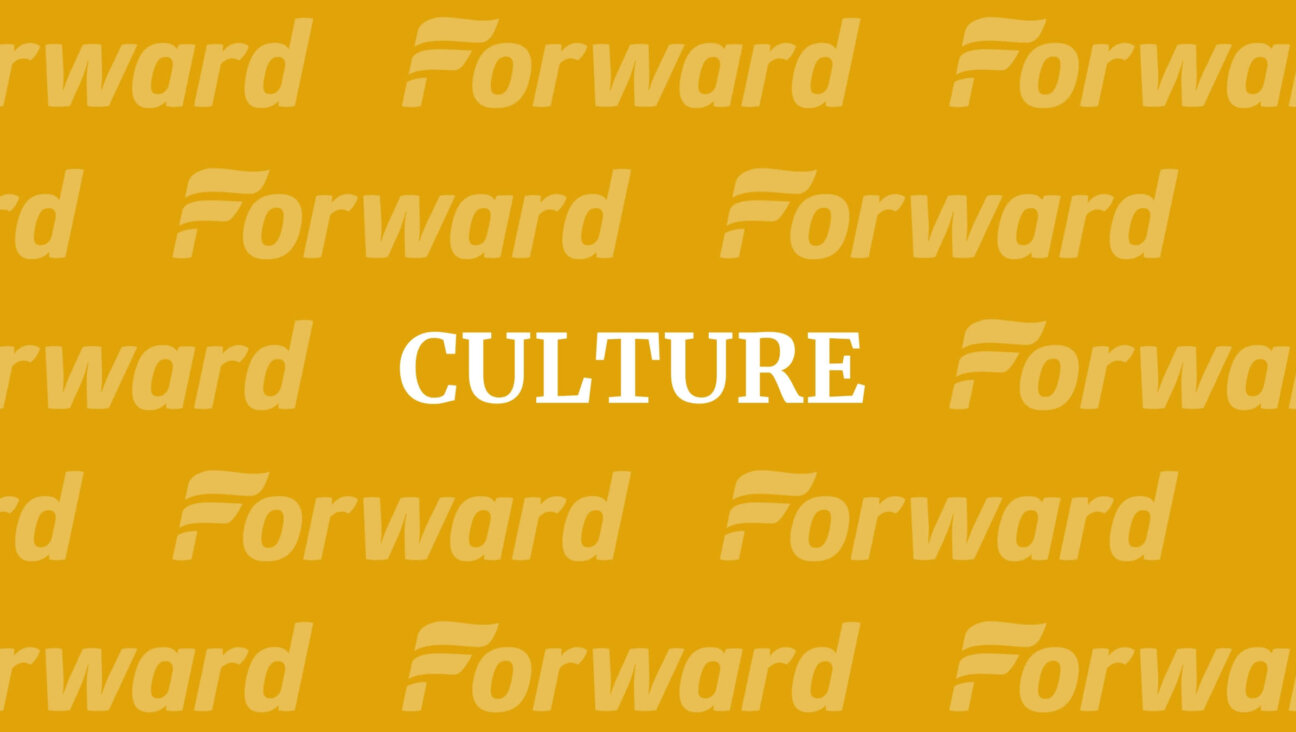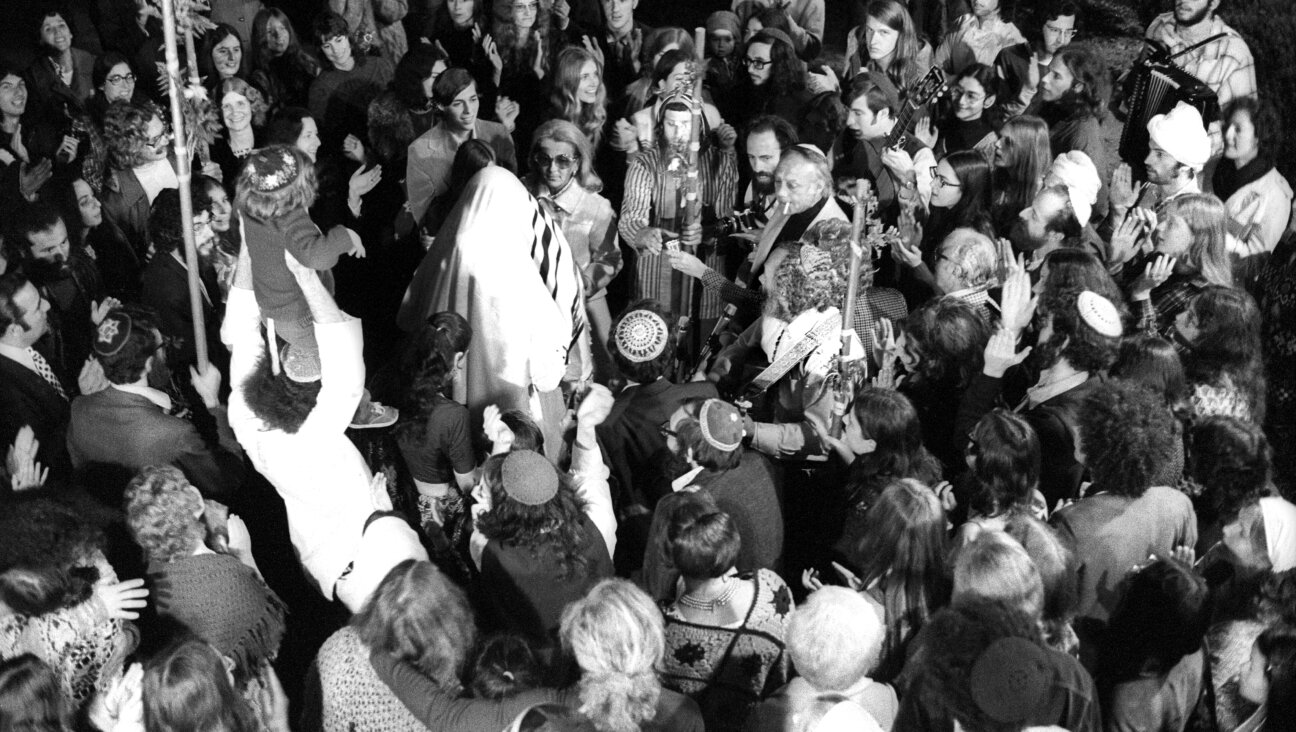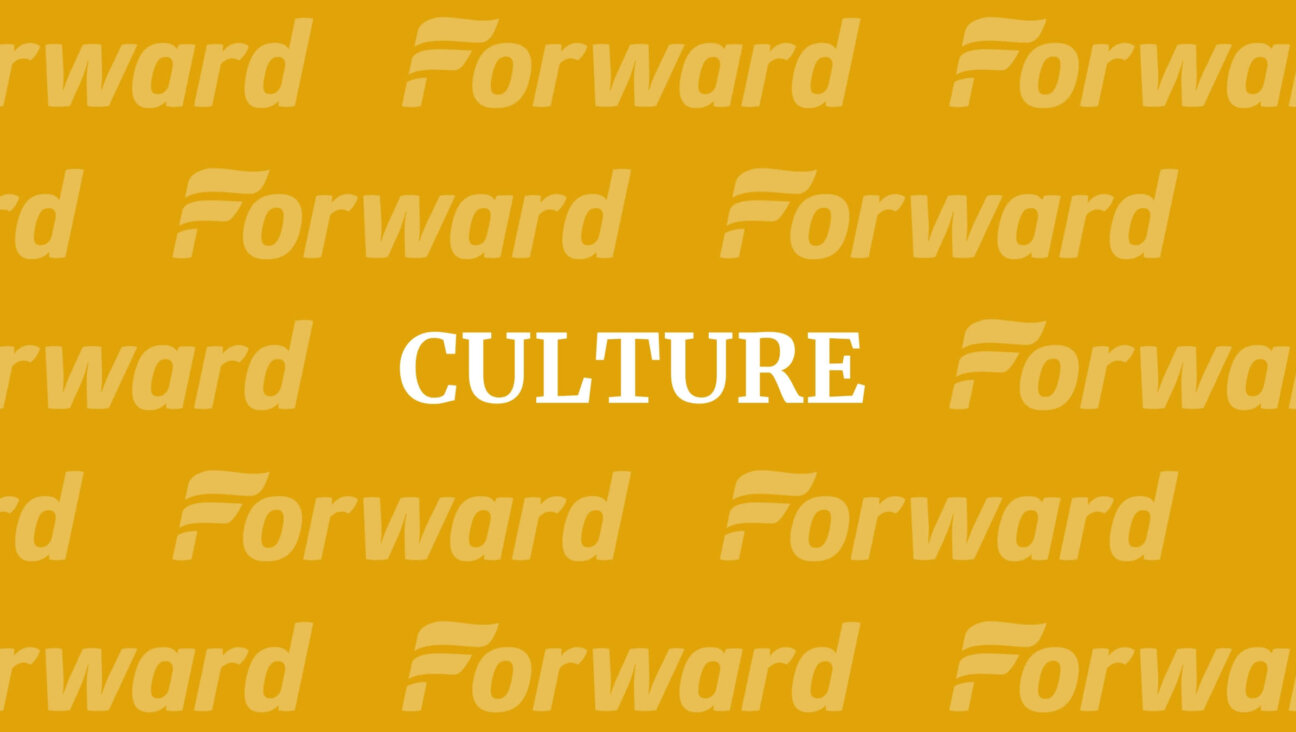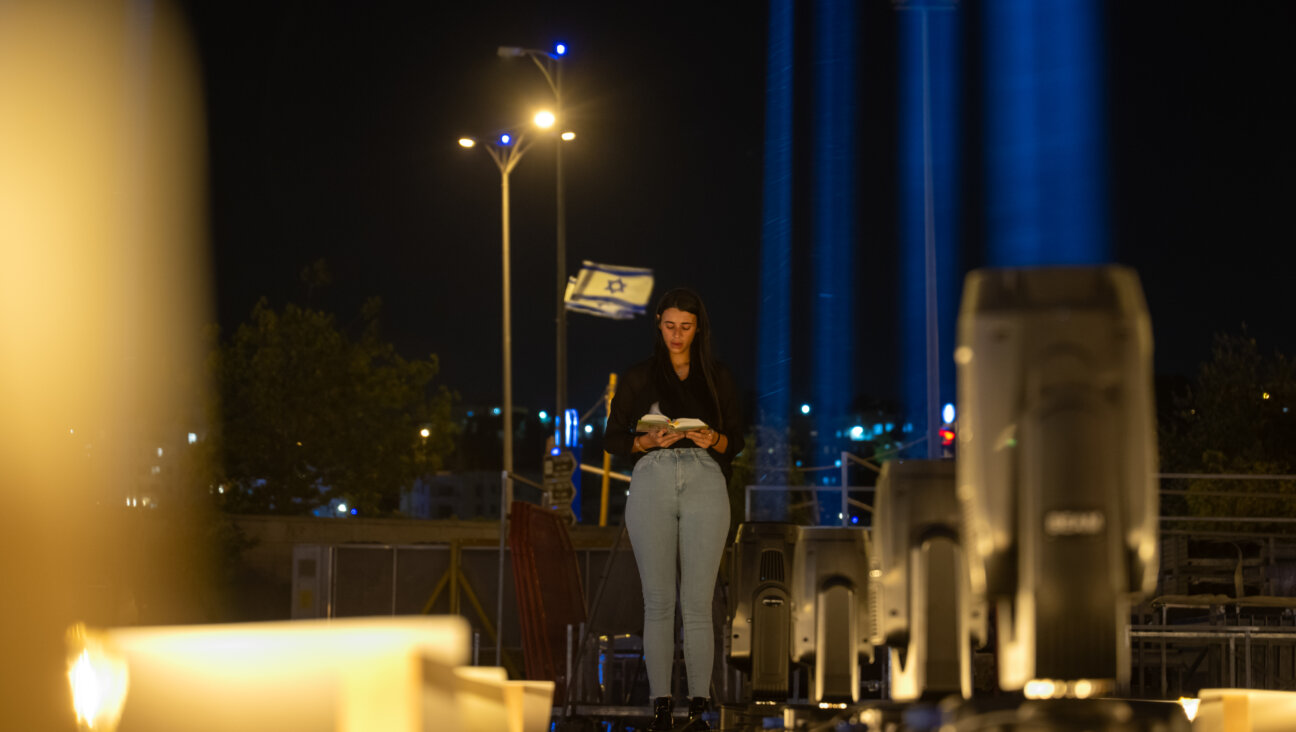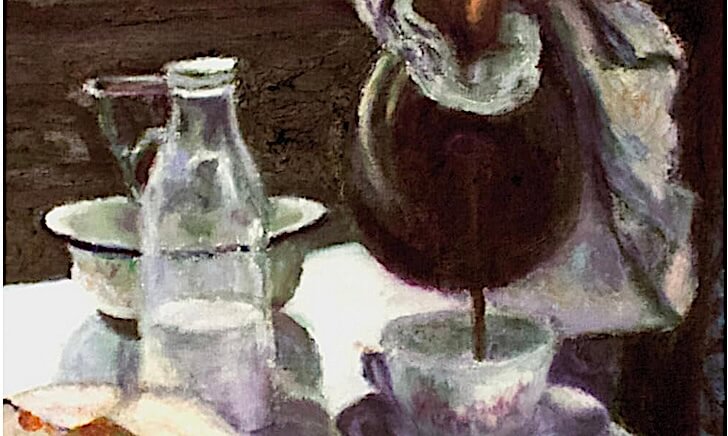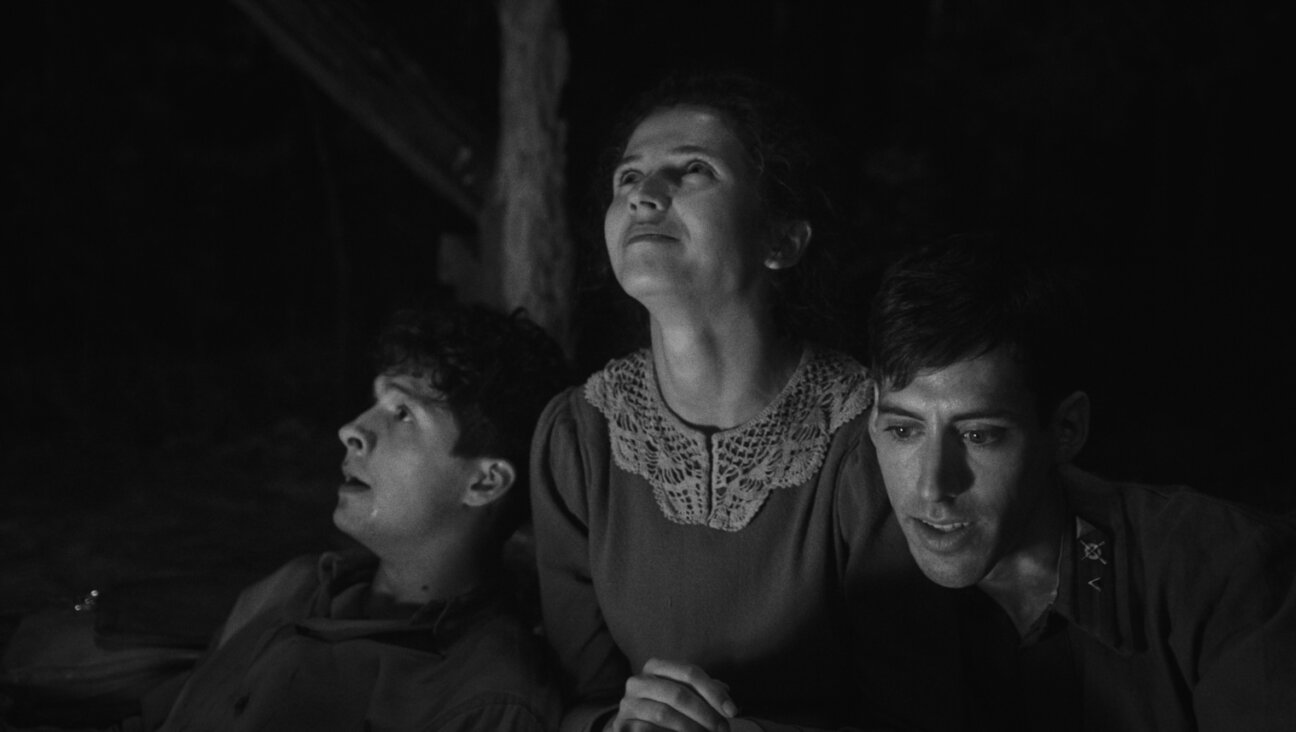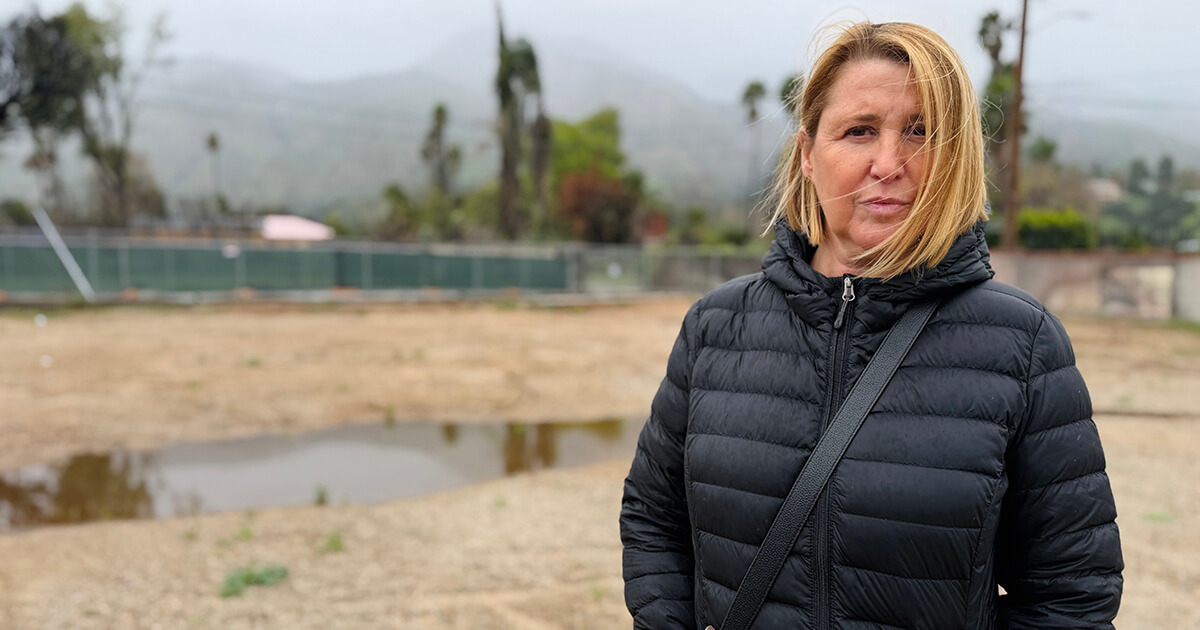In a France riven by terrorism, why history (and one particular Jewish historian) still matters
Marc Bloch would have understood the irony of the threats issued at the school bearing his name
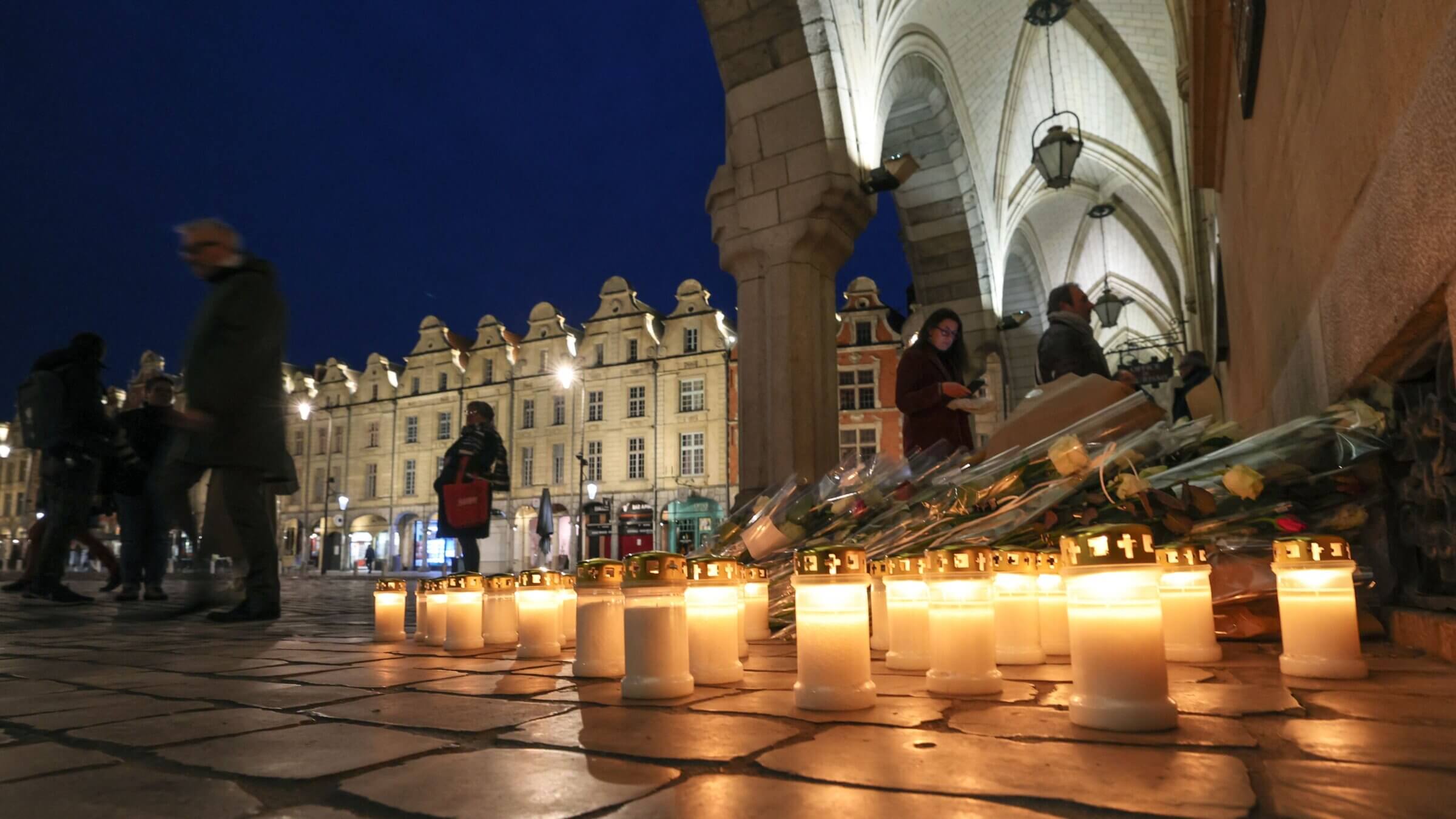
A memorial for French teacher Dominique Bernard, who died in a knife attack in Arras. Photo by Getty Images
Last Friday, France was again the stage for an act of Islamist terrorism. In the northern city of Arras, a young man of Chechen origin named Mohammed Mogouchkov confronted a group of professors outside his former high school. Wielding a knife, he fatally stabbed one of them, Dominique Bernard, and wounded three others. Shortly before his rampage, Mogouchkov made a video, declaring his allegiance to the Islamic State and his hatred of France and everything it represents, including the subjects taught in the schools.
History seems to be among those subjects that Mogouchkov despises. As he approached the professors, Mogouchkov asked one of them if he taught history. At first glance, this is an odd question for a terrorist to ask. But a glance at a calendar makes the question a bit less odd. Dominique Bernard died a few days before the third anniversary of the death of Samuel Paty. A professor of history at a public high school in suburban Paris, Paty was beheaded by yet another young Chechen on Oct. 16, 2020, for the crime of teaching history, which included showing images of Muhammad in his classes. (To no avail, Paty had excused from class those Muslim students who did not wish to see the images.)
Jamais deux sans trois. Things come in threes, even terrorist threats against French schools. A few days after Bernard’s murder, a student in the southern French town of Sérignan sent a snapshot to one of his teachers at the local high school, the lycée Marc Bloch. Framed by images of knives, the message warned “You’re next.” The police promptly arrested the teenager, who insisted the message was a joke.
No one is laughing. However, Marc Bloch, one of 20th-century France’s most influential historians, might smile at the irony of this event taking place at the lycée named after him. With his friend Lucien Febvre, Bloch launched the Annales movement, named after its scholarly journal, which revolutionized the writing of history. It turned the attention of historians away from the traditional actors of history — kings, generals, popes — and toward those previously dismissed as the acted upon: peasants, soldiers, and artisans. They dismissed political events, which they portrayed as superficial as the slapping of waves. Instead, Annalistes like Bloch plumbed the depths of human events, convinced that history is the stuff of slow demographic, economic and social change.
In his pathbreaking books on medieval French history, Bloch revealed history as a tug of war between a past that pulls us back and a present that pushes us forward. This tension between past and present is never resolved, yet it always reveals the marvels of our shared humanity. History, Bloch insisted, must always turned “vers la vie” — toward life. Not just the lives of men and women centuries ago, but also how our own lives are shaped by those forces from the past. No less important, Bloch believed that the historical rhymed with the ethical: Getting the past right, or as right as possible, was crucial, if only because the truth about the past helps us to better master the present.
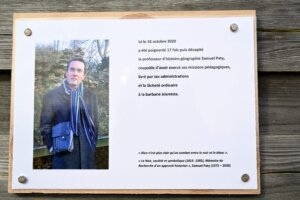
These convictions were not just those of a student of the past, but an actor in the present. Just as his great-grandfather had fought for revolutionary France in 1793, just as his father had fought for France against Germany in 1870, Bloch fought for France in World War I and, though in his mid-50s and hobbled by arthritis, also in World War II. After the rapid defeat of France and equally rapid rise of the antisemitic and collaborationist regime of Vichy, Bloch turned down an invitation to join the New School of Social Research in New York.
Instead, in late 1943 the bespectacled academic joined Franc-Tireur, one of the several resistance movements. Bloch had no illusions about the risks he ran as an “Israelite” — the polite term used for French Jews of social standing — but still threw himself into clandestine activity. Catching sight of Bloch on a street corner in Lyon, a fellow resister was astonished to see him with a cane in one hand while with the other hand he “passed out mysterious and compromising scraps of paper to young men as calmly as though he were handing back essays after an examination.”
Not surprisingly, perhaps, Bloch was caught by the SS in spring 1944 and, following several weeks of captivity and torture, was executed with several resistance fighters in an open field. It is no more surprising that, during those last few years, Bloch continued to write, completing one book — an account of France’s military collapse in 1940, titled L’Étrange défaite, or “Strange Defeat” — while leaving unfinished a second book, Apologie pour l’histoire, ou le métier d’historien. The title to the English translation, The Historian’s Craft, fails to capture the urgency of Bloch’s task: namely, to defend — the literal sense of “apology” — the study, writing and teaching of history.
Bloch’s brief for history is concise: If we deprive ourselves of the knowledge of the past, we deny ourselves the means to master the present. The solidarity of the ages is so powerful, he writes, “that the lines of connection work both ways. Misunderstanding of the present is the inevitable consequence of ignorance of the past. But a man may wear himself out just as fruitlessly in seeking to understand the past, if he is totally ignorant of the present.”
Natalie Zemon Davis, yet another admirable historian of medieval France, declared, “If the historian’s calling has a modern saint and hero, it is Marc Bloch.” The soul-scalding events now unfolding not just in France, but in Israel and Gaza, remind us why Bloch is a particular kind of saint we need so desperately — namely, a secular saint. In Strange Defeat, Bloch wrote that “By birth I am a Jew, though not by religion, for I have never professed any creed, whether Hebrew or Christian. I feel neither pride nor shame in my origins. I am, I hope, a sufficiently good historian to know that racial qualities are a myth, and that the whole notion of Race is an absurdity … I am at pains never to stress my hereditary save when I find myself in the presence of an anti-Semite.”
Bloch knew the many ways in which France failed to live up to its revolutionary and republican values of liberty, equality and fraternity. Yet he also knew that these values remain a standard that secular democracies must always strive to attain. Both claims, though they co-exist in tension, are equally true. And it is for his unwavering attachment to truth, most of all, that Bloch remains as relevant in 2023 as he was in 1943. As he instructed his family, Bloch’s simple gravestone is engraved with two words: Delixit veritatum. “He loved the truth.”

